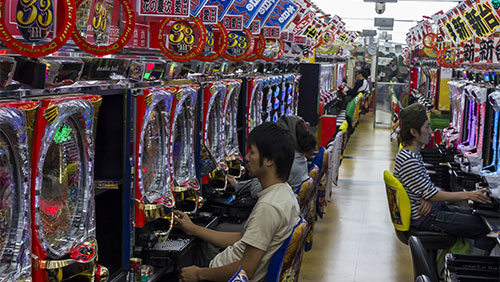The Japanese government is looking to restrict existing gambling establishments – including the US$200 billion pachinko industry – as it prepares to welcome casinos in its jurisdiction.
 Bloomberg reported that the move was part of the government’s plan to tackle gambling addiction even before country adds Las Vegas-style casino resorts.
Bloomberg reported that the move was part of the government’s plan to tackle gambling addiction even before country adds Las Vegas-style casino resorts.
Pachinko is Japan’s favorite gambling product, with some 23.3 trillion yen (US$209 billion) wagered at pachinko parlors in 2015. The number is reportedly tantamount to four percent of Japan’s gross domestic product.
Aside from pachinko, Japan also allows betting on horse, boat, bicycle and motorcycle racing, but relatively little has been done to combat associated problem gambling activity.
A government document obtained by the news website showed that restricting an individual to play pachinko at the request of relatives are among the ideas that the Japanese government is considering, as well as visitation limits similar to that offered by Singapore’s casino regulatory authority.
Japan is also looking into the possibility of requiring pachinko operators to introduce measures to combat addiction as well as establishing an independent body to oversee the progress.
Regulations to be considered for other gambling venues include banning credit card machines that offer instant cash loans from race tracks, according to the document. A panel of government ministers is set to approve the document by the end of the week.
Kazuaki Sasaki, associate professor in the department of international tourism at Toyo University, said one of the reasons why the issue on gambling addiction had been shrugged off in the past was due to the fact that pachinko isn’t classified as gambling.
He said operators circumvent the law by offering winners prizes, which then can be exchanged for cash at counters outside the parlors.
“Companies in any sector prefer to regulate themselves — being bound by legislation is bad for business,” Sasaki said. “Although the increase in costs will hurt the industry in the short term, they’re necessary to ensure its long-term survival.”